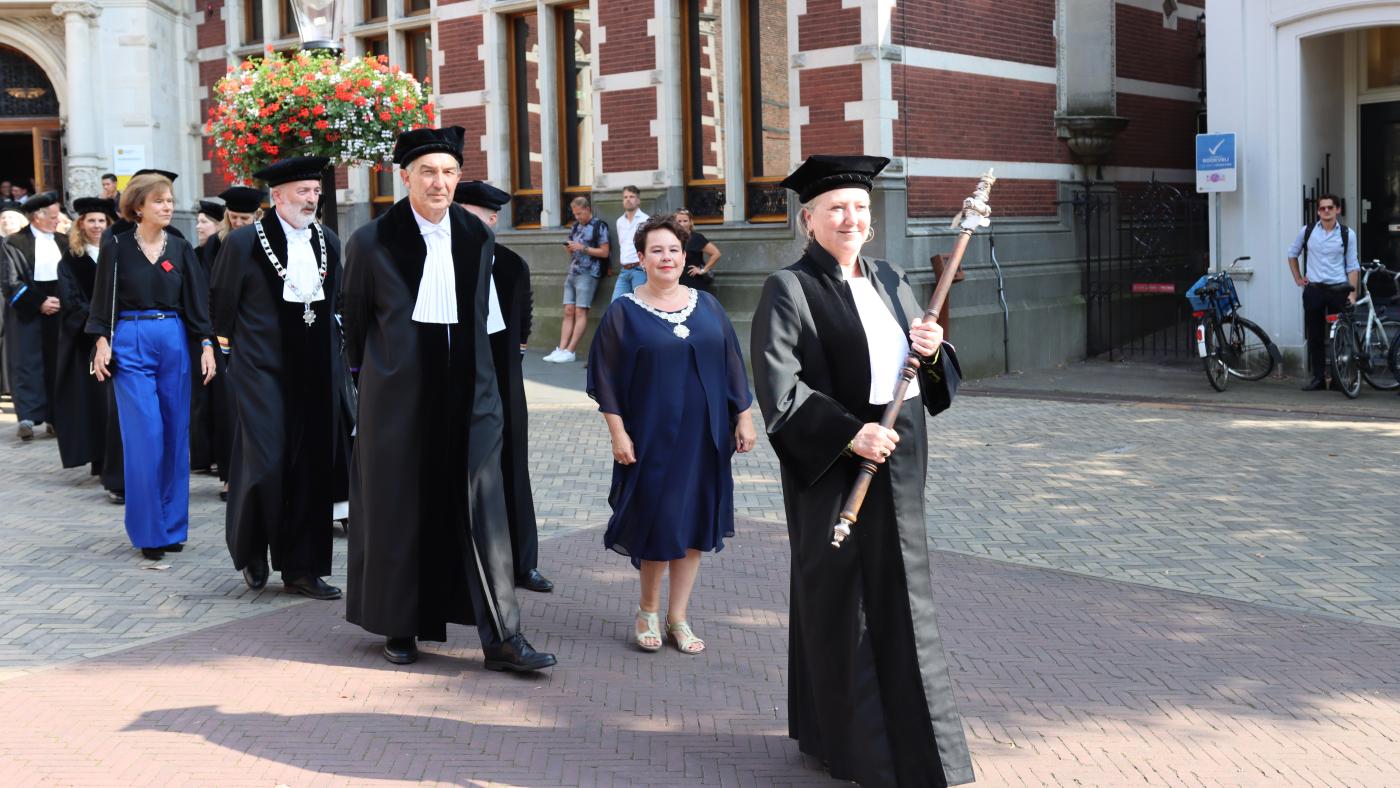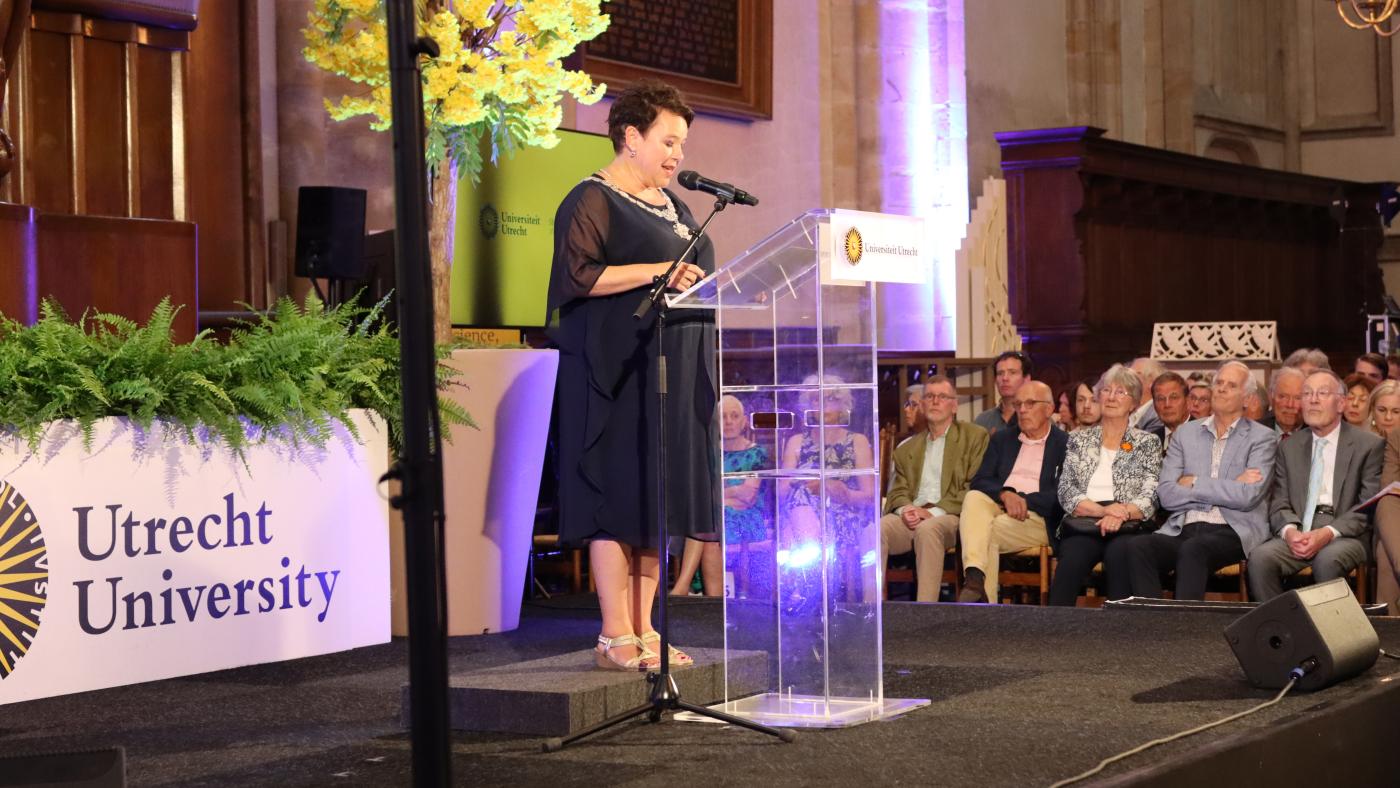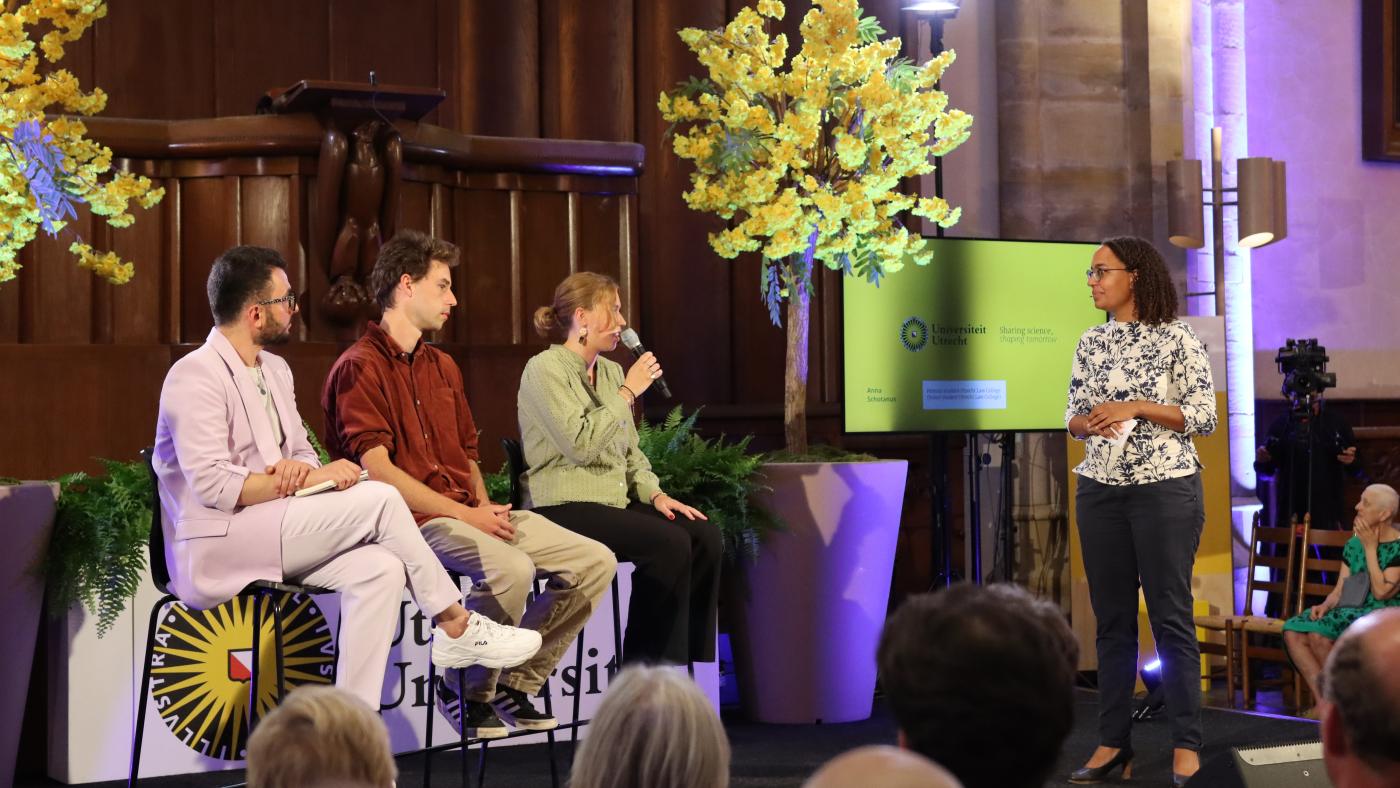Human Rights are a central theme at the Opening of the Academic Year
Protesting at UU is allowed, under certain conditions

Long lines formed in front of Dom Church on Monday, when Utrecht University celebrated a new academic year. Everyone was searched upon entry out of fear of unexpected demonstrations. People whose names were not on the guest list were refused, no compromises.
This strict policy was adopted following the university's anniversary celebrations, which were disrupted by a pro-Palestine protest. This time, however, the extra security was not necessary. No activists showed up that afternoon.
The protesters might have not been there, but they sure were present in the speeches. Utrecht Mayor Sharon Dijksma was the keynote speaker that afternoon. She made a plea for the right to demonstrate. “Without the fundamental right to voice a dissenting voice on the streets, no open, free, fair and well-functioning democracy is possible,” she said. The mayor also pointed out that Utrecht was the first Dutch city to sign the demonstration manifesto written by Amnesty International. In July, Amnesty International published a report showing that it is becoming more and more difficult for people to demonstrate on the streets, even in Western societies.
However, Dijksma observed that the right to demonstrate is not unlimited and, as a mayor, she must make certain considerations. Protests should not endanger public order and safety, nor should they incite hatred, discrimination and violence. Demonstrations should not be a means to impose a group's will on others.

Utrecht mayor Sharon Dijksma was the keynote speaker that afternoon. Photo: DUB
UU President Anton Pijpers underlined the importance of the right to demonstrate as well. “Demonstrating is allowed at our university. It is part of our democracy. We give people all the space to use their freedom of speech.” But he too indicated that there are limits to this right. “If we can no longer guarantee safety, that's it.”
As an example, he mentioned the occupation of a university building on Drift, when several emergency exits were blocked with broomsticks, chains, tables and chairs. “I don’t want to think about one of the demonstrating students or employees getting ill or a fire breaking out. If such a thing had happened, it would have been difficult for emergency services to help quickly.”
Pijpers also said that certain interests should be taken into account, such as people's right to receive an education or the university's duty to safeguard the safety of students and employees with Jewish and/or Israeli roots, some of whom do not dare come to the university anymore. He did not mention the controversial house rules introduced by the university this spring, which were criticized by many, including Amnesty International. According to UU, occupying a building is not part of people's right to demonstrate.
The house rules were mentioned later that afternoon by Rector Henk Kummeling, who said: “The current house rules are based on freedom of expression and the right to demonstrate. You are allowed to demonstrate, you are allowed to protest. But that freedom is not unlimited.” According to the rector, interests that are sometimes conflicting, such as the right to education and safety, must be taken into account.
Pijpers emphasised the importance of dialogue. He noted that talking to each other has become increasingly difficult in recent months, but he believes that UU employees should continue to engage in dialogue, no matter how thorny the topic may be. “Perhaps we haven't done things well. We underestimated the need to make our discussions and considerations regarding this subject visible. The Executive Board wants to continue talking. After all, that is how we do it at this university.”

Students Hüseyin, David and Anna talk about their project on human rights
In addition to the right to demonstrate, the ceremony also highlighted the project Utrecht: City of People and Rights (site in Dutch only, Ed.). Professor Antoine Buyse, from the Netherlands Institute of Human Rights (SIM), explained how students can contribute to visualising how human rights apply to everyday situations in the city. For example, student Jamil gives Taekwondo lessons in Overvecht, promoting self-awareness among young people in the neighbourhood. Judge Tessa, who focuses on juvenile rights, helps families in difficult situations.
Additionally, three students took the stage to talk about their human rights projects. Robert is involved in the movement De Gezondheidszaak (The Health Case, Ed.) to achieve a healthier city, while Hüseyin strives to help refugees and Anna participates in City of Man and Law. Thanks to this project, Anna understood how human rights apply to everyday life, in situations such as bicycle theft on Oudegracht.
Noa Duizend was announced as the winner of the Student Award for Social Impact. Her project is clearly linked to human rights. Noa is Jewish and joined forces with another Jewish student and two Muslim students to organise dialogues about the conflict between Hamas and Israel.